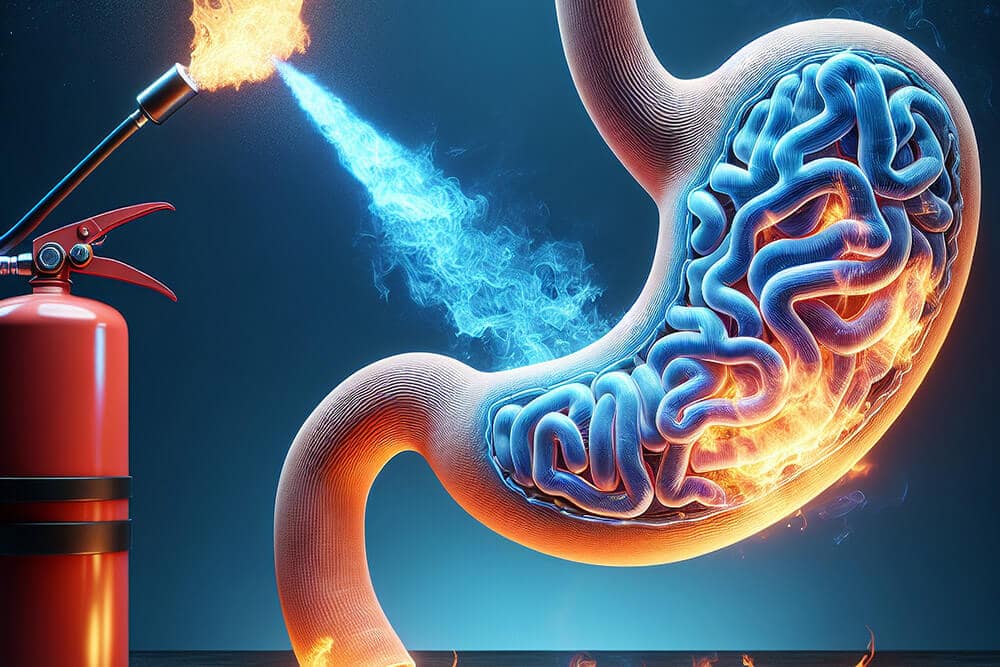What Is an Esophageal Ulcer?
An esophageal ulcer is a break or sore in the lining of the esophagus, the tube that carries food from your mouth to your stomach. It develops when stomach acid or other irritants eat away at the protective mucosal layer. If untreated, ulcers can bleed, scar and narrow the esophagus, but with prompt medical care they often heal within weeks.
Common Causes and Risk Factors
- Gastroesophageal reflux disease (GERD) -chronic acid reflux
- Infections -fungal (Candida) or viral (herpes, CMV)
- Medications -NSAIDs, aspirin, certain antibiotics
- Smoking -tobacco weakens and inflames esophageal tissue
- Alcohol use -irritates and thins the mucosal lining
- Hiatal hernia -allows stomach acid to back up into the esophagus
Signs and Symptoms
- Burning or gnawing chest pain that may worsen with eating
- Pain or discomfort when swallowing (odynophagia)
- Chest pain behind the breastbone
- Nausea or episodes of vomiting
- Unintended weight loss or decreased appetite
- Signs of bleeding -dark stools or anemia (advanced cases)
Expert Treatment for Esophageal Ulcer by Dr. Bharat Pothuri
Dr. Pothuri uses a step-by-step approach:
Medical History and Physical Exam
He asks about your chest or epigastric pain, heartburn, swallowing difficulties, duration of symptoms, medication use (NSAIDs, antibiotics), alcohol and tobacco use, and any weight loss. He'll palpate your abdomen and check for tenderness or signs of complications.
Blood Tests
A complete blood count (CBC) may detect anemia from chronic bleeding. Tests for H. pylori antibodies or antigens can identify infection that often contributes to ulcer formation.
Imaging and Functional Studies
- Barium Swallow X-Ray: Evaluates anatomy, detects strictures, hiatal hernia, or motility disorders.
- Esophageal pH Monitoring: Measures acid exposure to confirm reflux as a cause of ulceration and pain.
- Esophageal Manometry: Assesses muscle contractions and sphincter function if motility issues are suspected.
Upper Endoscopy (EGD)
A thin, flexible scope is passed into the esophagus to directly visualize sores, ulcers, or inflammation. Biopsies and tissue cultures may be taken to rule out infections (yeast, viral) or dysplasia/cancer.
Advanced Testing (if needed)
In select cases, endoscopic ultrasound or CT scan helps assess deeper tissue involvement, rule out complications, or guide further therapy.

Frequently Asked Questions
What is the ICD-10 code for an esophageal ulcer?
The code is K22.1, used by healthcare providers for medical records and insurance billing.
How long does it take for an esophageal ulcer to heal?
With proper treatment, most esophageal ulcers heal within four to eight weeks.
Can an esophageal ulcer turn into cancer?
It's rare, but chronic ulcers may raise concern. Dr. Pothuri will monitor your condition with regular follow-ups.
How can I manage an esophageal ulcer at home?
Follow your doctor's advice, eat soft meals, avoid spicy or acidic foods, quit smoking, limit alcohol, and take prescribed medications.
When should I seek emergency care for chest pain?
Severe or sudden chest pain could signal a medical emergency. Call 911 or go to the nearest ER immediately.
Is endoscopy always necessary?
Endoscopy provides the clearest view and allows biopsy if needed. Dr. Pothuri will recommend it based on your symptoms and risk factors.












